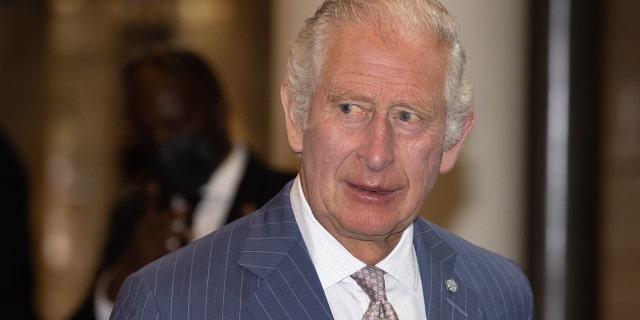Prince Charles’ office has denied there was any wrongdoing in the heir of the British throne accepting bags full of cash as charity donations from a Qatari politician.
The Sunday Times reported that the 73-year-old was given a total of 3 million euros, or $3.2 million, by Sheikh Hamad bin Jassim bin Jaber Al Thani, the former prime minister of Qatar. The outlet alleged that the money was handed over to the British prince during private meetings between 2011 and 2015 — on one occasion in a suitcase and another in shopping bags from London’s Fortnum & Mason department store.
The newspaper also reported that the money was deposited into the accounts of the Prince of Wales’ Charitable Fund, which gives grants to other non-profit groups that support the royal’s causes and interests. It did not allege that anything illegal was done.
Charles’ office, Clarence House, said in a statement that the donations "were passed immediately to one of the prince’s charities who carried out the appropriate governance and have assured us that all the correct processes were followed."
PRINCE CHARLES TOLD BY UK LEADERS TO STOP MEDDLING IN POLITICS AMID IMMIGRATION COMMENT BACKLASH: REPORT

Prince Charles' office, Clarence House, said in a statement that the donations "were passed immediately to one of the prince’s charities who carried out the appropriate governance and have assured us that all the correct processes were followed." (Photo by Luke Dray/Getty Images)
His charitable fund also told the outlet it had verified "that the donor was a legitimate and verified counterparty… and our auditors signed off on the donation after a specific enquiry during the audit. There was no failure of governance."
Qatar’s government communications office did not immediately respond to The Associated Press’ request for comment. Hamad has not publicly commented.
As Qatar’s prime minister between 2007 and 2013, Hamad oversaw the oil-rich state’s sovereign wealth fund, which has major property investments around the world, including London’s Shard skyscraper, Heathrow Airport and Harrods department store.
Charles, who is Queen Elizabeth II’s eldest son, faces the possibility of an investigation by The Charity Commission, known as the governing body of charities in Britain.
ATO allies will decide at a summit this week to increase the strength of their rapid reaction force nearly eightfold to 300,000 troops as part of their response to an “era of strategic competition," the military alliance's secretary-general said Monday.
The NATO response force (NRF) currently numbers around 40,000 soldiers which can deploy quickly when needed.
Coupled with other measures including the deployment of forces to defend specific allies, NATO Secretary-General Jens Stoltenberg said the move is part of the “biggest overhaul of collective defense and deterrence since the Cold War."
Lasso, whose adversarial relationship with the national assembly has worsened during the protests, has also withdrawn security measures and announced subsidized fertilizers and debt forgiveness.
Indigenous groups led by organization Conaie said in a statement earlier on Monday that the price reduction to $2.45 a gallon for gasoline extra and $1.80 a gallon for diesel was not enough.
But in the afternoon the groups said they would attend a meeting with government officials set for 2pm local time (1900 GMT), even as backers marched in Quito in rejection of the new prices.
Lasso said on Twitter the measures he has announced, including the gas price cut, will cost about $600m.
People in the capital, Quito, awoke on Monday to some road blockades. Residents have complained of shortages of domestic gas and food. Other cities have also reported shortages of fuel and medical supplies for hospitals.
The public oil sector, private producers of flowers and dairy products, tourism and other businesses have lost about $500m, the government has said.
Conaie tallies five protester deaths, while the government says three civilians died during marches, two more were killed in accidents and two died in ambulances delayed by blockades.
Lawmakers are set to continue debate on Tuesday on an effort to remove Lasso from office, though it appears opposition groups do not have the necessary support for the measure to succeed.
“These troops will exercise together with home defense forces,” Stoltenberg said. “And they will become familiar with local terrain, facilities, and our new pre-positioned stocks. So that they can respond smoothly and swiftly to any emergency."
In response to the Kremlin’s decision to start the war, U.S. President Joe Biden and his NATO counterparts agreed in February to send thousands of troops, backed by air and naval support, to protect allies near Russia and Ukraine. The 30-nation organization decided at the time to send parts of the NRF and elements of a quickly deployable spearhead unit to the alliance’s eastern flank, marking the first time the force had been used in a defense role
Stoltenberg made the remarks at a press conference ahead of a NATO summit this week in Madrid when the 30 allies are expected to also agree on further support to Ukraine in its war against Russia.
Stoltenberg said he expects allies to make clear they consider Russia “as the most significant and direct threat to our security." At the summit, allies will also decide to strengthen their battlegroups on NATO's eastern flanks, he said.
In NATO's new strategic concept, the alliance is also set to address for the first time the security challenges posed by China, Stoltenberg said. In Madrid, allies will discuss how to respond to the growing influence of Russia and China in their “southern neighborhood," he added.
Stoltenberg said allies will agree to deliver further military support to Ukraine when they convene in Spain, with NATO members set to adopt a “strengthened comprehensive assistance package,” including deliveries of secure communication and anti-drone systems.
Over the long term, Stoltenberg said allies aim to help Ukraine transition from Soviet-era armaments to modern NATO equipment. The world's seven leading economic powers underscored Monday their commitment to Ukraine for “as long as it takes.”